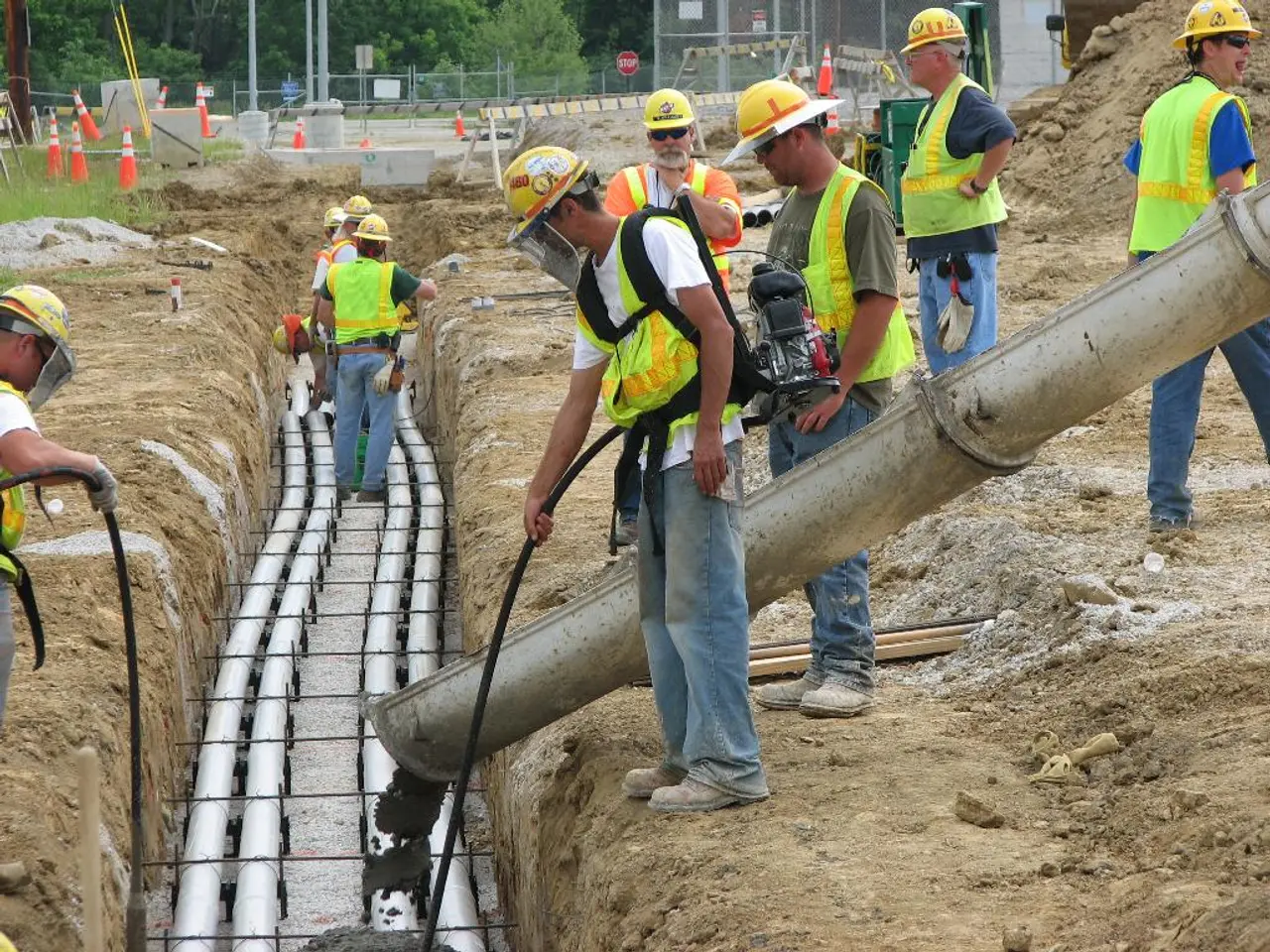Strict new quality standards set to be unveiled for construction and infrastructure projects by the governmental body.
In a significant move to improve the quality and durability of public infrastructure projects, the Indian government has announced plans to implement stricter quality control mechanisms. The decision, which was initiated following a high-level review meeting called by the Prime Minister's Office (PMO), aims to address longstanding issues of durability, material quality, post-construction inspection, and timely project delivery.
The new guidelines will apply to all projects executed by Central public sector enterprises and under Public-Private Partnership (PPP) models. Competent, experienced consultants are being emphasized instead of just the lowest bidder for infrastructure projects, marking a shift towards value-based selection when quality is non-negotiable.
The new quality control norms focus on enhancing contractor accountability, durability, materials quality, and post-construction supervision. Stricter eligibility criteria for contractors have been introduced to ensure only financially sound and capable firms undertake large projects. This move is aimed at preventing inexperienced or under-capitalized firms from causing delays and substandard construction quality.
Improved project execution and supervision are at the heart of the revised norms. Robust construction supervision and quality control mechanisms are being put in place to guarantee the use of appropriate durable materials and adherence to specifications throughout the construction phase. Third-party audits and inspections are being mandated for all infrastructure projects above a certain threshold, assuring compliance and accountability with project timelines and quality norms.
As part of India’s broader regulatory reforms, quality control orders (QCOs) have significantly expanded, covering hundreds of products to ensure uniform application of high-quality standards domestically and for exports. This harmonization eliminates dual standards and promotes overall quality improvement in materials used for infrastructure projects.
The emphasis on strict quality certifications and inspections for materials like copper cathode and others points to an enforcement regime ensuring that substandard materials are excluded from projects, thereby enhancing overall infrastructure durability.
By demanding higher financial thresholds and more rigorous pre-qualification, the government is holding contractors more accountable for delivering projects on time and up to quality benchmarks, reducing cost overruns and delays that historically affected infrastructure projects.
Real-time project tracking is being implemented for infrastructure projects, allowing for early detection of deviations and enforcing corrective actions, thereby improving infrastructure longevity and safety. Stricter penalties for errant contractors are also being introduced.
Infrastructure failures not only jeopardize lives but also erode public trust in flagship infrastructure programs, such as the ₹111-lakh crore National Infrastructure Pipeline. The move to overhaul quality control mechanisms is seen as long overdue by experts, who have expressed serious concern at the increasing number of infrastructure failures reported across the country.
The implementation of the new quality control mechanisms is a response to the series of infrastructure failures across the country, including collapsing bridges, cave-ins, and widespread erosion of roads and buildings during the monsoon season. The new guidelines for infrastructure projects are expected to be finalized in the coming months and will likely become mandatory.
- The new quality control measures in infrastructure projects, driven by stricter eligibility criteria for contractors and a focus on post-construction supervision, aim to prevent delays and substandard construction quality caused by inexperienced or under-capitalized firms.
- As part of the revised norms, third-party audits and inspections are being mandated for all infrastructure projects above a certain threshold to assure compliance and accountability with project timelines and quality norms.
- The government's new emphasis on strict quality certifications and inspections for materials like copper cathode will help exclude substandard materials from projects, thereby enhancing overall infrastructure durability.
- To hold contractors more accountable, the government is demanding higher financial thresholds and more rigorous pre-qualification, reducing cost overruns and delays that historically affected infrastructure projects.
- Real-time project tracking is being implemented for infrastructure projects, enabling early detection of deviations and enforcing corrective actions, thus improving infrastructure longevity and safety while addressing concerns of increasing infrastructure failures reported nationwide.




